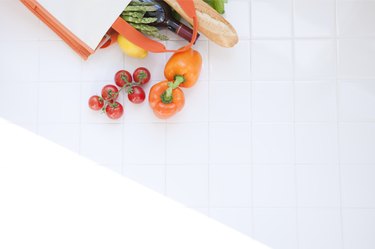
If you wake up exhausted, or you find yourself dragging midday -- even if you got a good night's sleep -- your diet might be to blame. Nutrient deficiencies and sugar can cause fatigue and disrupt your blood sugar levels, leaving you feeling drained. We talked to top nutrition experts to learn which foods are best for increasing your energy, and how to incorporate them into your diet.
Edamame
Video of the Day
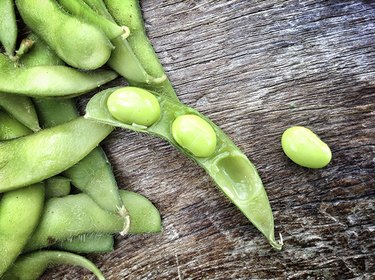
If you're looking for an energy boost, snack on edamame -- green, immature soybeans -- says Rene Ficek, a registered dietitian and lead nutrition expert at Seattle Sutton's Healthy Eating. Edamame comes loaded with protein and fiber, which keep you full for long-lasting energy between meals.
Video of the Day
Use frozen edamame in soups, pastas and chilis, throw a handful of thawed beans onto a salad or snack on roasted edamame.
Chia Seeds
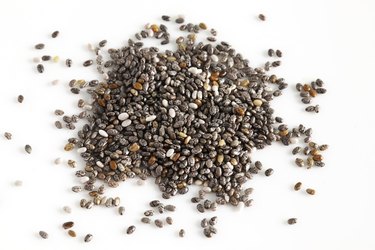
Chia seeds are packed with protein, omega-3s and nutrients that increase your energy. "Chia fiber is uniquely hydrophilic, so they soak up a lot of water and form a gel," says Sara Vance, nutritionist and author of The Perfect Metabolism Plan. "This gel helps keep you hydrated, provides lasting energy, and supports endurance." They're also high in essential minerals, like calcium.
Add a tablespoon of chia to your smoothie or oatmeal to reap its energy boosting benefits.
Coconut Oil
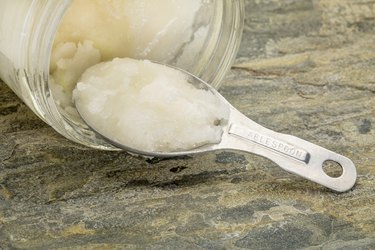
Coconut oil is great for energy due to its unique fatty acid composition, which includes lots of medium-chain fatty acids. "These fatty acids are more easily converted into energy and less likely to get stored as fat," says Vance.
Try mixing or blending coconut oil into your coffee, tea or smoothie. "I find having a teaspoon of coconut oil in a cup of tea helps curb sugar cravings," says Vance. You can also use it in place of cooking oils for sautéing and baking.
Cashews
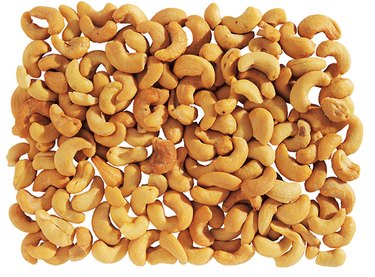
Cashews are an energizing snack you can eat on the go. Each serving comes packed with essential minerals, like copper and zinc, that your cells need to make energy.
Cashews can also work as a dairy alternative -- simply soak cashews overnight in water, then blend the mixture for fresh cashew milk. Because cashews are so soft, you don't even need to strain the milk before drinking -- just serve it as-is.
Hummus and Veggies
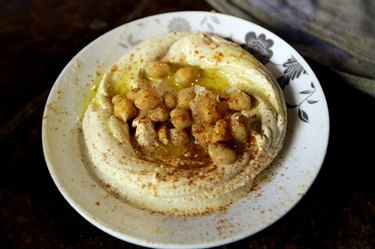
Pairing protein-rich hummus with fiber-rich veggies makes for a well-balanced energy boost, says Karah Stanley, a registered dietitian at the St. Elizabeth Weight Management Center in Florence, Kentucky. The fiber and protein increase satiety, so you'll feel satisfied and have lasting energy between meals.
The chickpeas in hummus also contain iron, a mineral your cells use to make energy, while the vitamin C in the veggies enhances iron absorption. Choose red pepper slices or cherry tomatoes as rich sources of vitamin C.
Whole Wheat Toast and Almond Butter
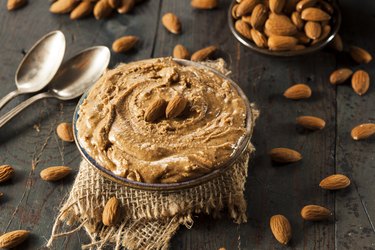
Make almond butter on toast for a quick breakfast or snack for energy. "Whole wheat toast provides healthy carbohydrates and fiber to get me going and keep me feeling full," says Stanley. "And a heaping tablespoon of almond butter adds healthy fats and a protein boost."
Make sure you choose bread made with 100 percent whole grains, especially if you need an energy boost. Varieties simply labelled "wheat bread" might still contain refined flour, which can cause blood sugar crashes that leave you fatigued. Choose all-natural almond butter that only contains almonds and salt, since some varieties have added sugar.
Quinoa
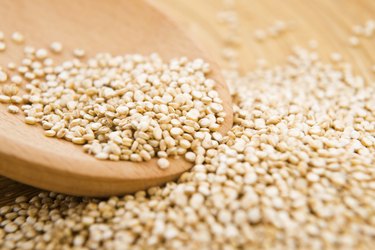
Quinoa comes packed with protein and offers significant amounts of B-complex vitamins, which makes it a natural energy enhancer, explains nutrition expert Stacy Goldberg, founder of Savorfull. Quinoa also contains essential minerals that help your cells produce energy and healthy carbs and fiber that keep your blood sugar levels stable, which is important for sustained energy throughout the day.
Combine quinoa with foods high in vitamin C to maximize iron absorption. Try a spinach salad topped with strawberries, walnuts, quinoa and salmon for an energizing lunch.
Salmon
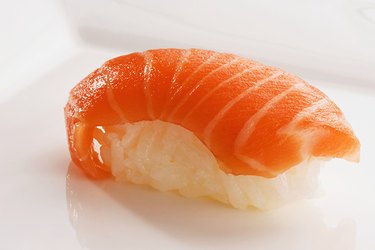
Salmon is among the best foods to eat for healthy fats and protein. It is one of the best sources of omega-3 fatty acids, supports brain health, and improves your mood.
Like quinoa, salmon is loaded with B-complex vitamins and minerals. It's also a source of vitamin D, a nutrient that helps your mitochondria -- the "power stations" of your cells -- work efficiently to increase your energy.
Beets
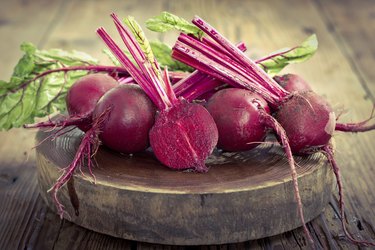
Beets are loaded with beneficial compounds called nitrates that your body converts into energy-boosting nitric oxide. "Nitric oxide expands the walls of your blood cells, giving them the opportunity to absorb more oxygen and produce more energy," says Goldberg. Beets' slow-releasing carbohydrates also keep your blood sugar levels stable, preventing spikes and crashes.
Add shredded roasted beets to your spinach salads, blend a few pieces of raw peeled beetroot into your smoothie or serve roasted beet hummus with veggies for an energizing snack.
Water

Being even a little dehydrated can leave you feeling tired and sluggish, so making sure you're getting enough water is important for energy.
Start by aiming for 64 ounces per day, recommends Stanley, and work up to getting an ounce of water for each kilogram of body weight -- about 68 ounces for a 150-pound person, or 82 ounces for a 180-pound person -- or more, if you're very active. Add flavor by steeping your water with cucumbers, strawberries or lemons.